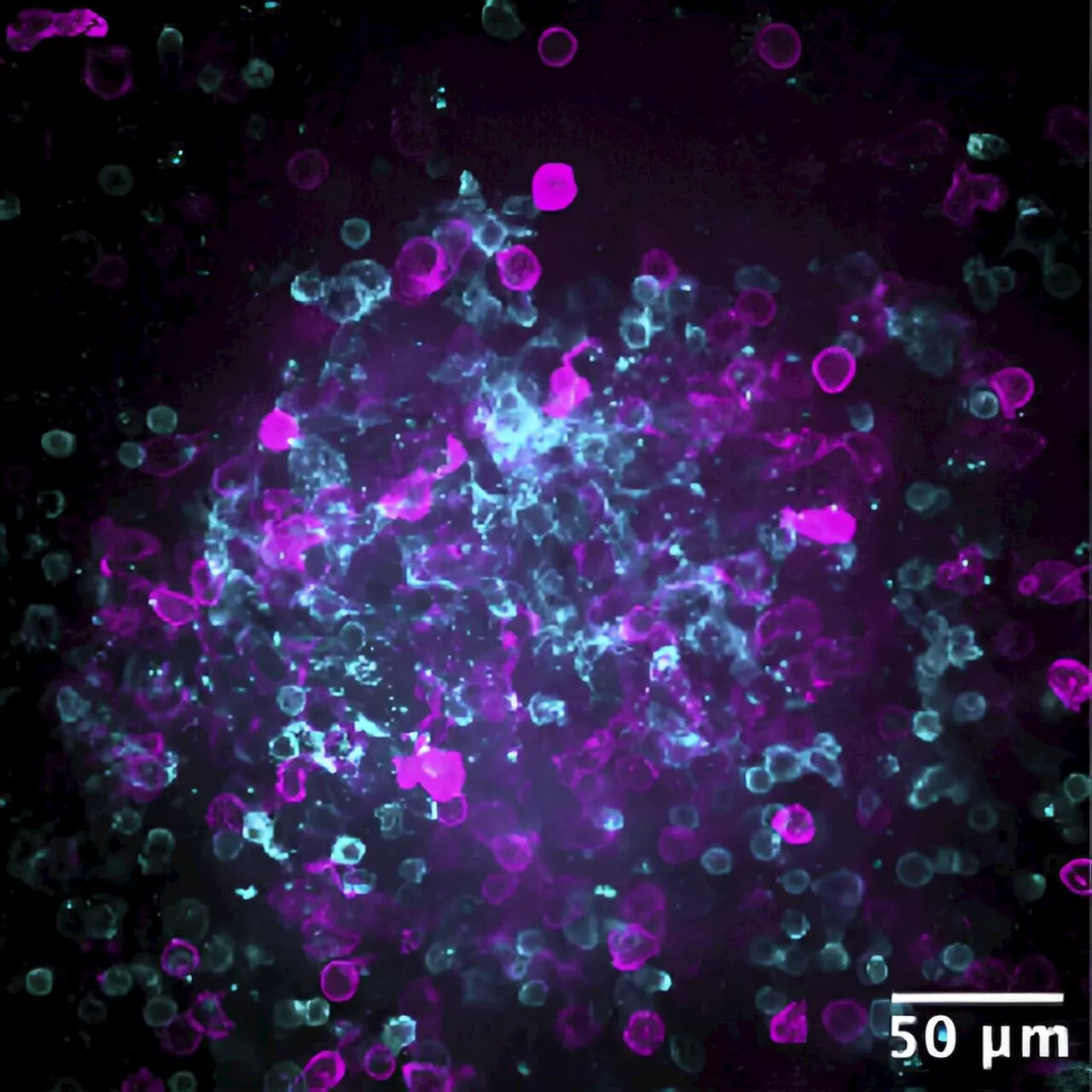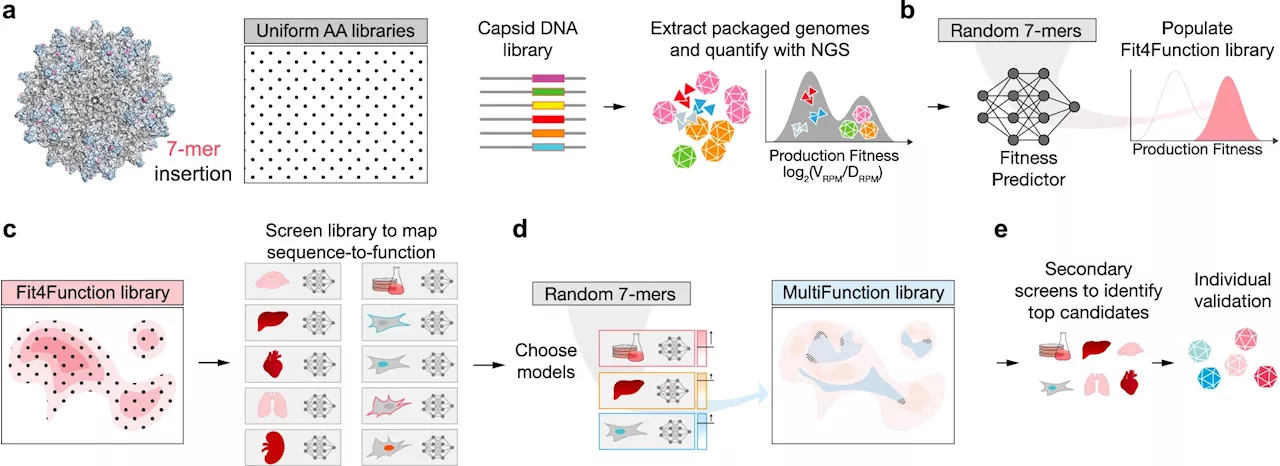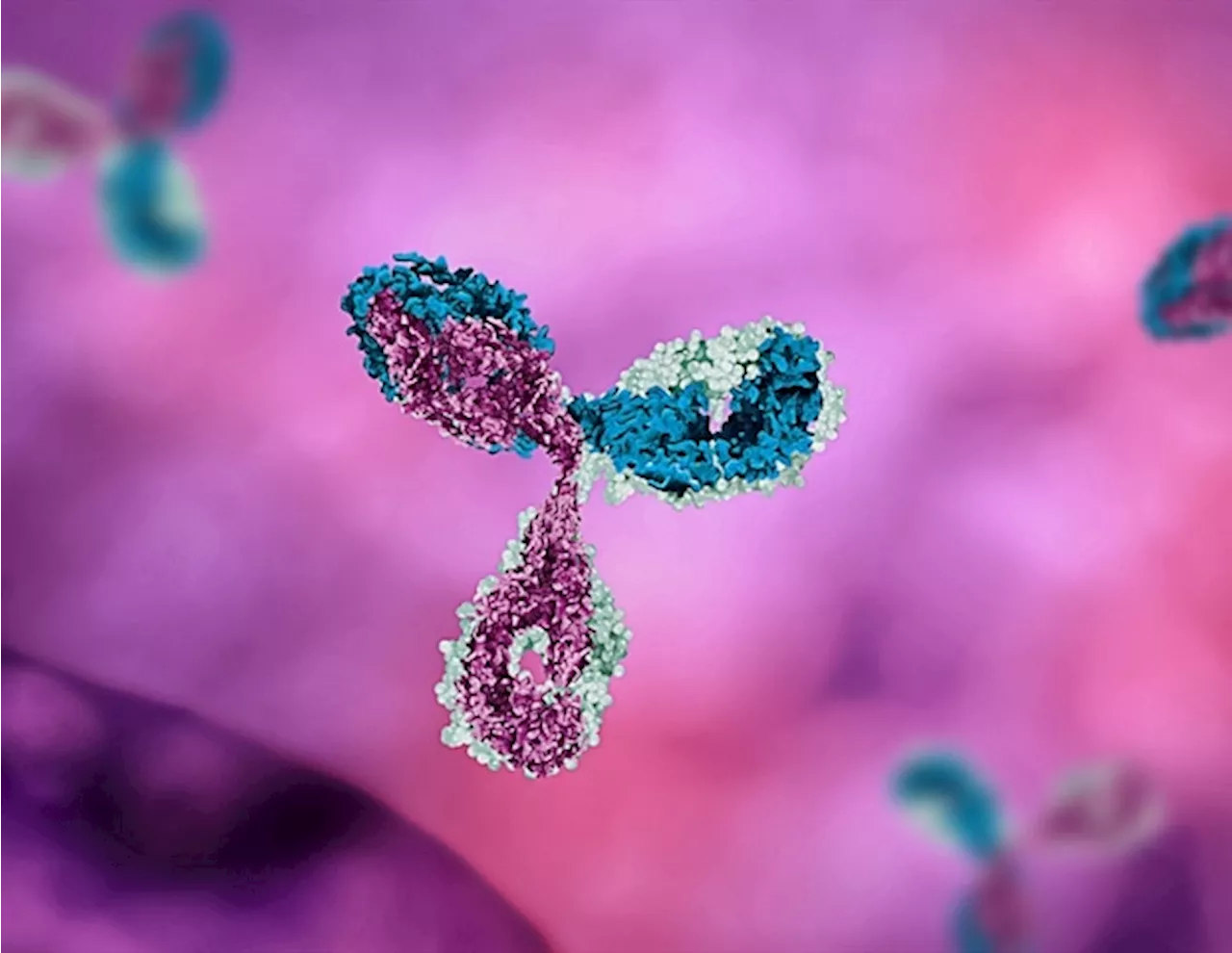Researchers at the Institut Pasteur in France have developed artificial 'lymphoid organ-chips' that recreate much of the human immune system's response to booster vaccines
Rockefeller University PressSep 6 2024 Research ers at the Institut Pasteur in France have developed artificial "lymphoid organ-chips" that recreate much of the human immune system's response to booster vaccines. The technology, described in an article to be published September 6 in the Journal of Experimental Medicine , could potentially be used to evaluate the likely effectiveness of new protein and mRNA-based booster vaccines for COVID-19 and other infectious diseases.
The COVID-19 pandemic has emphasized the need for preclinical systems that enable a rapid evaluation of immune responses elicited by candidate booster vaccines, particularly within specific cohorts of high-risk individuals." The immune system's response to a vaccine is coordinated in secondary lymphoid organs, such as the lymph nodes and spleen, where various types of immune cell gather and interact with each other to spur the development of specific antibody-producing B cells.
When the researchers exposed the lymphoid organ-chips to the SARS-CoV-2 spike protein, B cells and T cells within the blood samples became active and clustered together, just as they do in real lymphoid organs. The B cells then matured and began to produce antibodies capable of neutralizing the SARS-CoV-2 virus.
By comparing lymphoid organ-chips created with blood samples from different donors, however, Chakrabarti and colleagues were able to observe a variety of different responses: chips created from some donors responded equally well to either type of mRNA booster, while chips created from other donors showed a stronger response for either the monovalent or bivalent vaccine.
Blood Cell CHIP Covid-19 Evolution Immune System Infectious Diseases Medicine Mutation Omicron Pandemic Preclinical Protein Research SARS SARS-Cov-2 Technology Vaccine Virus
Singapore Latest News, Singapore Headlines
Similar News:You can also read news stories similar to this one that we have collected from other news sources.
 Artificial lymphoid organs could help predict efficacy of booster vaccinesResearchers at the Institut Pasteur in France have developed artificial 'lymphoid organ-chips' that recreate much of the human immune system's response to booster vaccines.
Artificial lymphoid organs could help predict efficacy of booster vaccinesResearchers at the Institut Pasteur in France have developed artificial 'lymphoid organ-chips' that recreate much of the human immune system's response to booster vaccines.
Read more »
 Lawyers say US cybersecurity law too ambiguous to protect AI security researchersBeen injecting prompts to test the safety of large language models? Better call Saul
Lawyers say US cybersecurity law too ambiguous to protect AI security researchersBeen injecting prompts to test the safety of large language models? Better call Saul
Read more »
 Researchers find type 2 diabetes cases more than doubled seven decades after exposure to famineResearchers at Columbia University Mailman School of Public Health, the University of North Carolina at Chapel Hill and at the National Academy of Sciences of Ukraine used the setting of the man-made Ukrainian Holodomor famine of 1932–1933 to examine the relation between prenatal famine and adult type 2 diabetes mellitus (T2DM).
Researchers find type 2 diabetes cases more than doubled seven decades after exposure to famineResearchers at Columbia University Mailman School of Public Health, the University of North Carolina at Chapel Hill and at the National Academy of Sciences of Ukraine used the setting of the man-made Ukrainian Holodomor famine of 1932–1933 to examine the relation between prenatal famine and adult type 2 diabetes mellitus (T2DM).
Read more »
 Researchers report potent antibiotic that overcomes resistanceScience Translational Medicine has published a study by researchers from the Institute of Biology Leiden (IBL) on a potent new antibiotic that can overcome resistance. 'The idea was to tweak the original antibiotic and create a next-generation drug,' says Nathaniel Martin, professor of Biological Chemistry.
Researchers report potent antibiotic that overcomes resistanceScience Translational Medicine has published a study by researchers from the Institute of Biology Leiden (IBL) on a potent new antibiotic that can overcome resistance. 'The idea was to tweak the original antibiotic and create a next-generation drug,' says Nathaniel Martin, professor of Biological Chemistry.
Read more »
 Machine learning approach helps researchers design better gene-delivery vehicles for gene therapyGene therapy could potentially cure genetic diseases, but it remains a challenge to package and deliver new genes to specific cells safely and effectively. Existing methods of engineering one of the most commonly used gene-delivery vehicles, adeno-associated viruses (AAV), are often slow and inefficient.
Machine learning approach helps researchers design better gene-delivery vehicles for gene therapyGene therapy could potentially cure genetic diseases, but it remains a challenge to package and deliver new genes to specific cells safely and effectively. Existing methods of engineering one of the most commonly used gene-delivery vehicles, adeno-associated viruses (AAV), are often slow and inefficient.
Read more »
 Children can inherit early aging symptoms from parents who abuse alcohol, researchers findResearchers at the Texas A&M School of Veterinary Medicine and Biomedical Sciences (VMBS) have discovered that parents who struggle with alcohol use disorders can pass along symptoms of early aging to their children, affecting them well into adulthood. Their results are published in Aging and Disease.
Children can inherit early aging symptoms from parents who abuse alcohol, researchers findResearchers at the Texas A&M School of Veterinary Medicine and Biomedical Sciences (VMBS) have discovered that parents who struggle with alcohol use disorders can pass along symptoms of early aging to their children, affecting them well into adulthood. Their results are published in Aging and Disease.
Read more »
